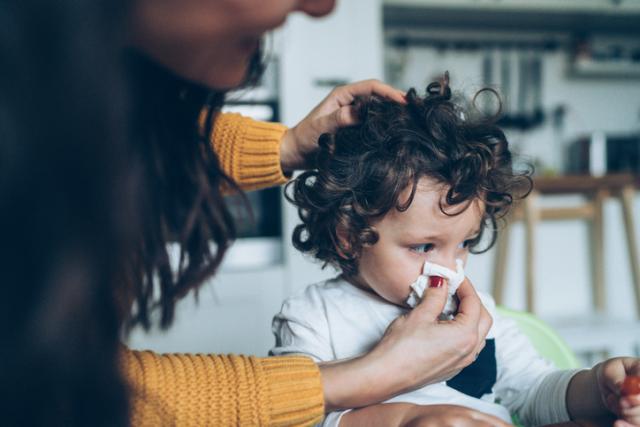Dr. Howard Balbi, Director of Pediatric Infectious Diseases and Associate Chairman of Pediatrics at Good Samaritan University Hospital, answers your questions about respiratory syncytial virus (RSV) in children.
What is RSV?
RSV is a respiratory virus primarily spread by respiratory droplets when the person who has RSV coughs or sneezes. It is the most common cause of bronchiolitis (wheezing) and pneumonia in children under one year of age in the United States. RSV infections usually occur during the fall and winter seasons and the flu season.
How is RSV different than COVID-19 and the flu?
RSV, COVID-19 and the flu are all respiratory illnesses caused by different respiratory viruses such as respiratory syncytial virus, SARS-CoV2, coronavirus and influenza virus. These are often difficult to distinguish from each other based on symptoms.
What are the signs and symptoms of RSV?
Symptoms can vary according to the virus and other factors, such as age. Symptoms range from mild cold symptoms, like cough, congestion and body aches, to more severe forms that cause pneumonia and respiratory difficulty.
RSV infection typically presents like a common cold with cough and congestion, and low-grade fever. Often, younger children may present with wheezing similar to asthma. More severe cases can develop rapid and labored breathing and should be brought to an urgent care center or emergency room for evaluation.
What age group of children is most at-risk?
RSV can affect all age groups; however, infants, young children and older adults with chronic medical conditions are at risk for severe disease from RSV. About two-thirds of all infants are infected during their first year of life, and almost 100% by age two.
Is RSV contagious in children?
RSV is contagious through respiratory droplets. Whenever a person with RSV coughs or sneezes, those droplets are spread through the air and onto surfaces around them. RSV can be transmitted when someone comes into contact with those surfaces.
Is RSV treatable in children?
The treatment for RSV infections is mainly supportive. That includes fever control with acetaminophen or ibuprofen, hydration and sometimes oxygen for more severe cases. No medications (antivirals) are currently available for treating RSV.
Are there any steps I can take to prevent my child getting RSV?
Preventive care, including washing your hands and avoiding contact with a sick person, is the most important way to prevent the spread of respiratory viruses, including RSV. There are currently no vaccines available for RSV.
Why is there a rise in children with RSV?
RSV infections occur every year during the fall and winter months. During the early days of the COVID-19 pandemic, when social distancing and face masking were in place, a significant drop in RSV and flu transmission led to almost no cases in the 2020–2022 season.
Therefore, there were fewer natural boosts to immunity against these viruses in all age groups—especially young children. This has left infants—young children in particular—with very little protection against RSV this season.
Should I be concerned?
We must continue good hygiene practices, such as not sending our children to school if they are sick and teaching them to cover their sneezes and coughs properly. We also must continue with good preventive care against all respiratory viruses and get the flu vaccine for children six months or older.
For more information:
Call 866-MY-LI-DOC (866-695-4362) to find a Catholic Health physician near you. Explore our pediatric services.







